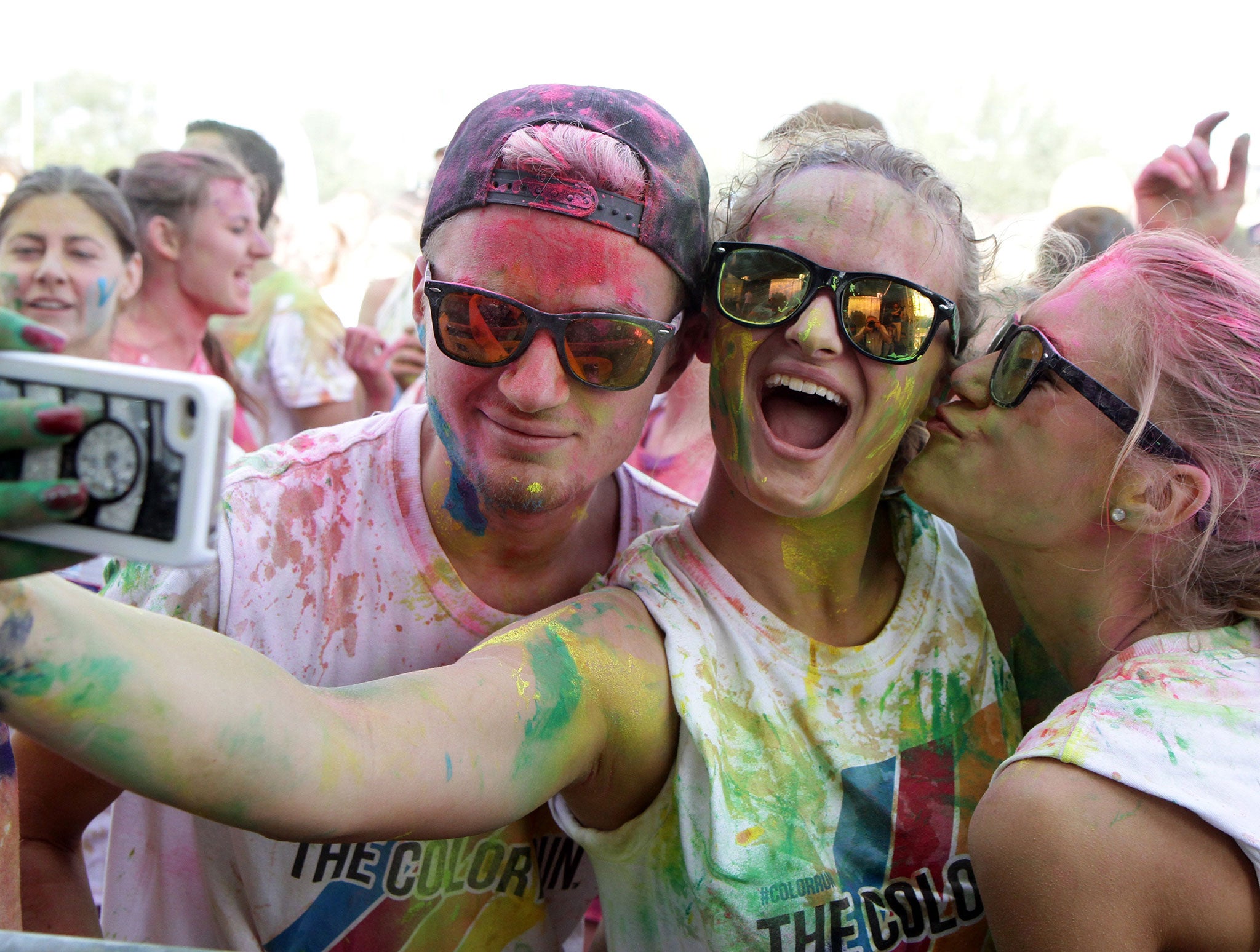How a selfie obsession could ruin your relationship, according to a psychologist
Is adopting a duck pout and posing really harmful?

Your support helps us to tell the story
From reproductive rights to climate change to Big Tech, The Independent is on the ground when the story is developing. Whether it's investigating the financials of Elon Musk's pro-Trump PAC or producing our latest documentary, 'The A Word', which shines a light on the American women fighting for reproductive rights, we know how important it is to parse out the facts from the messaging.
At such a critical moment in US history, we need reporters on the ground. Your donation allows us to keep sending journalists to speak to both sides of the story.
The Independent is trusted by Americans across the entire political spectrum. And unlike many other quality news outlets, we choose not to lock Americans out of our reporting and analysis with paywalls. We believe quality journalism should be available to everyone, paid for by those who can afford it.
Your support makes all the difference.“Selfie” is not just word of the year, but also the mainstay of postings on social media sites such as Instagram. With the prevalence of camera-equipped smartphones the posting of selfies has reached epidemic levels – even the funerals of national leaders aren’t exempt. But is there a psychological fall-out?
A new study by Florida State University academics Jessica Ridgway and Russell Clayton found that people who were more satisfied with their body image posted more selfies to Instagram – confidently showing off, you might say. But in turn, they reported experiencing more conflict with their romantic partner – such as jealous arguments about attention others had paid their photos online – and poorer relationship quality. So does this mean that Instagram selfies are bad for relationships?
The study’s authors speculate that when one partner frequently posts attractive selfies, the other partner may feel jealous or threatened. This may lead to excessive monitoring of the other’s Instagram feed, which means they see even more of the attention the photos receive from followers, potentially winding them up still further. This could potentially lead to greater conflict, cheating, or a break-up.
While the study didn’t directly measure this sort of monitoring behaviour, other research has revealed how social media surveillance of a romantic partner is associated with greater jealousy, insecurity, and dissatisfaction in relationships.
Another way to account for the potentially relationship-damaging effects of posting selfies is that they may simply alienate other people. There is a tendency for people to report less intimacy and emotional support in their relationships with people who are selfie-posting addicts. One reason why people may withdraw from these relationships is because they perceive the excessive selfie-posting as indicative of a narcissistic streak.
Now, the correlational design of Ridgway and Clayton’s study means that we cannot say for sure whether the posting of Instagram selfies actually caused the other romantic partner to feel insecure or alienated, thus instigating a downward relationship spiral. Rather, it could be that an underlying personality trait – such as narcissism – caused some people not only to be more satisfied with their body image and to post more selfies, but also to have poorer-quality relationships.
Signs of a narcissist
Narcissism is characterised by grandiose self-regard, a need for attention and admiration, vanity, a sense of entitlement and an exploitative attitude towards others. Narcissists’ preoccupation with their body image and craving to be admired could be one reason why they are more addicted to social media and post more selfies.
Along these lines, one study found that narcissistic men posted more selfies and were also more likely to use photo-editing software or filters to make themselves look better. Other studies have found a link between narcissism and selfie-obsession in both men and women. Narcissists don’t just post more selfies, they also post more Facebook status updates about their diet or exercise routine, consistent with their preoccupation with their physical appearance.
But alongside their vain and attention-seeking behaviour, narcissists also tend to experience poorer-quality relationships. A recent study found that couples reported a greater decline in relationship quality over the first four years of their marriage when the wife was a narcissist (interestingly the same result was not found when the husband was a narcissist).
These couples had not reported a decline in their relationship within the first six months of marriage; in fact, narcissists are often viewed positively by partners at the beginning of a relationship – and narcissists themselves may view a new relationship as an opportunity for ego validation. Over time, however, the narcissist’s low commitment, self-centredness and antagonism may chip away at relationship satisfaction.
Similarly, a narcissist’s selfie-posting may be viewed as attractive or endearing in the early stages of a relationship, but may become increasingly irritating as the relationship progresses.
So it’s not yet possible to conclusively establish whether posting selfies in itself damages relationships or whether selfie-posting and problems in relationships are symptomatic of an underlying trait such as narcissism. Further research may prove the link, but until then, you might want to consider not just the message your obsessive posting of selfies give to others, but also the potential damage it could cause to your love life.
Tara Marshall, Lecturer in Psychology, Brunel University London
This article was originally published on The Conversation. Read the original article.
Join our commenting forum
Join thought-provoking conversations, follow other Independent readers and see their replies
Comments